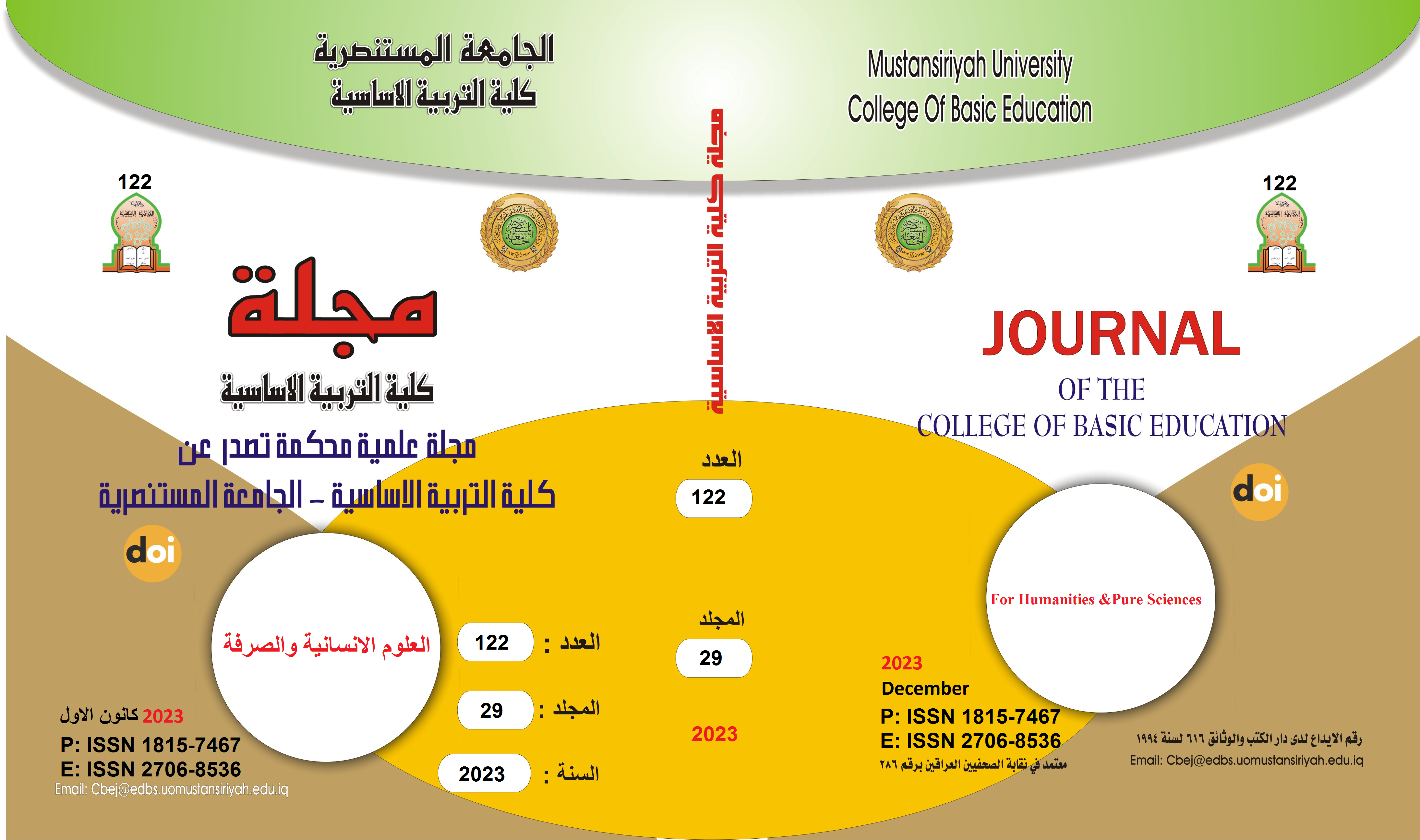Manifestations of Al-Wajeez literature ؛ The short poem as a model
Main Article Content
Abstract
The research targets the manifestations of brief literature in the ancient Arab and Western literary heritage up to the contemporary era, both terminologically and poetically. It also addresses the concepts of brevity in poetry, the terminology and nomenclature contained in this direction, and the opinions of various scholars. It also presents ancient and modern critical visions in brief literature, specifically in the short poem. very.
Contemporary Arab criticism receives from its ancient predecessor, where (what is connected to the circumstance in which the act of delivery takes place), the concepts of brevity of poetry, the most important manifestations of (brief literature), and transforms them into the term “short poem,” beginning with Abdullah Majzoub confirming his knowledge of Arab poets. There are ancient examples of this poem: (The rhyme-maker who really wants to rhyme does not adhere to the rhyme in more than four verses, because he has rhymed to escape from adhering to it in many verses, and even keeping the rhyme in four verses or less bores him, so he is forced to devote himself to ornamentation). Therefore, Naeem Al-Yafi says, “The history of the poetic conscience among the Arabs was originally based on the vibration of quick, flashing illumination, whether intellectual or emotional, and that the poems of a single line are deeply rooted in its conscience and history as well, which denies the validity of the claim or claim that it is an effect of Western doctrines. And the currents of modernity and importation that left their clear mark on our poetry.The research cited poetic examples that emphasize brevity and brevity in poets by ancient and modern poets.
Article Details

This work is licensed under a Creative Commons Attribution-ShareAlike 4.0 International License.
